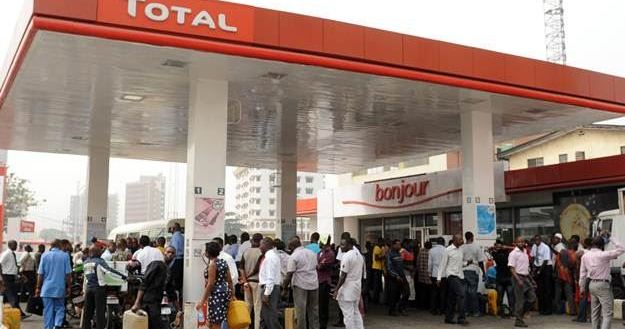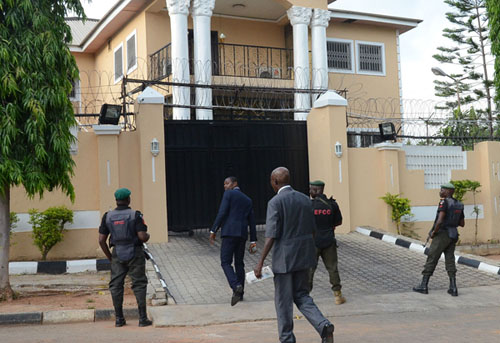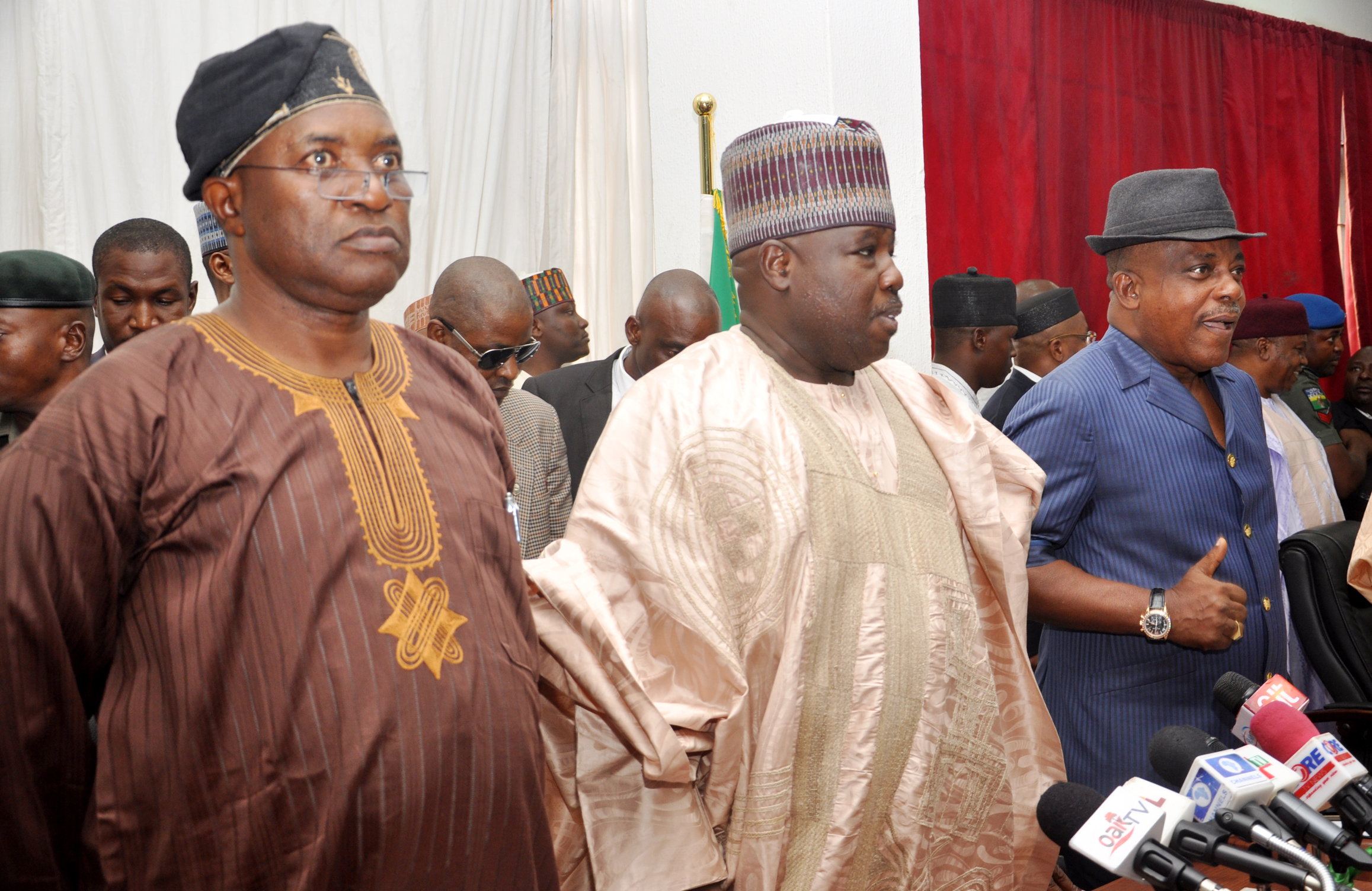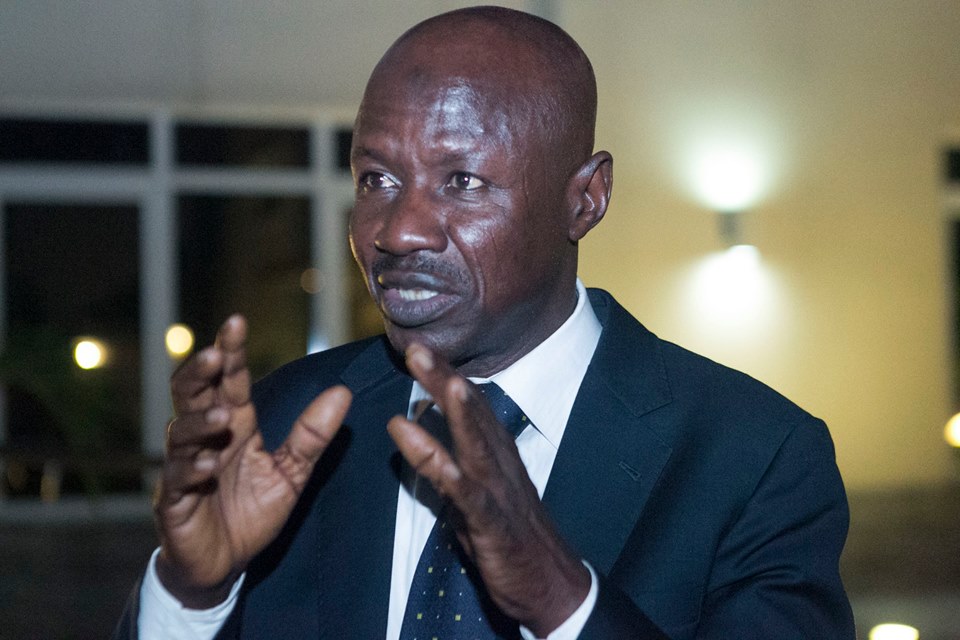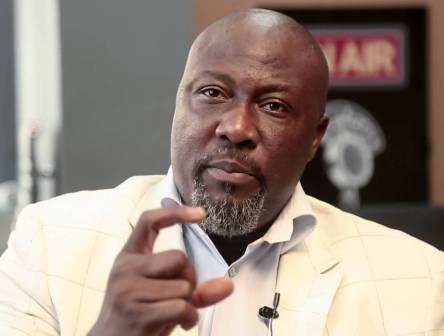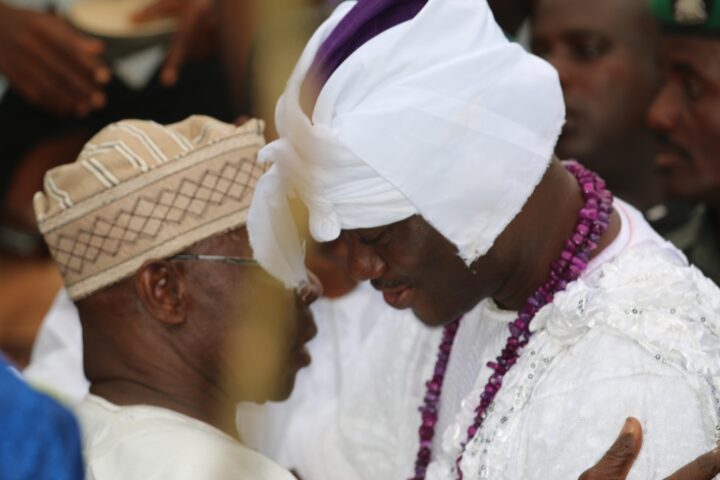The first indication that it would happen, at last, came from a fictitious group, “Concerned Nigerians.” They sponsored an advertorial in a newspaper on Monday, warning that petrol price would soon go up to N150 per litre and asking Nigerians to prepare for war if the government announced a new price.
Well, it happened on Wednesday. The government announced N145 as the new pump price. Are we hurting? Yes. The hardship in the country today confronts you wherever you go. Do we need a private army to recruit us into its own private war? No.
And this is why. Nigerians know those who mismanaged the oil industry for the last 16 years and ruined the refineries. They know those who paid out over N2trillion for subsidies that were not provided. They know those who paid out billions of dollars in the name of turnaround maintenance for our refineries and yet the work was never done. At one point, former minister of petroleum resources, Diezani Alison-Madueke, said about $1.6billion had been spent on turnaround maintenance, not counting the billions of naira paid out to Tompolo and co. to look after the pipelines. Yet, for all the money, things only got worse.
Nigerians know those who perpetually diverted crude oil meant for the local refineries to other uses. They know those who vandalised the storage and distribution system, leaving the country with no other option than to resort more and more to haulage. We’ve had a raw deal.
Advertisement
Yet, we won’t be soldiers in a fictitious army because we know how we got to where we are and we’ll have to do what is required to dig ourselves out of this hole.
The Nigeria Labour Congress is different. It not a fictitious army, yet it is just as mad about the hike in petrol price, threatening a showdown with the government. Given the level of hardship in the country, no one can blame the NLC for getting mad at a decision that could potentially worsen already rising price levels.
Interestingly, President Muhammadu Buhari and labour used to be on the same side – that there was no subsidy, or that if it existed at all, it was just a crooked way of stealing money and punishing the weak and vulnerable. In fact, in July, two months after his election, Buhari said, “I have received many literature on the need to remove subsidies, but much of it has no depth. When you touch the price of petroleum products, that has the effect of triggering price rises on transportation, food and rent. That is for those who earn salaries, but there are many who are jobless and will be affected by it.”
Advertisement
Under pressure from the World Bank to remove subsidies, he repeated this same line again in December.
Perhaps the only difference was that while labour would have looked the other way with a higher minimum wage, Buhari thought that tackling corruption alone would automatically cure the system.
But getting mad is not an economic substitute for the problem we’re facing. In many parts of the country today, consumers are paying between N150 to N200 for a litre of petrol after spending hours on the queue. There was even the case of a consumer who reportedly stripped at a filling station to fill the tank of his commercial bike.
At first, Buhari thought his government could deal with the problem by making NNPC the sole importer of petrol. After the corporation used an average $600million monthly at official rate to buy petrol for nearly one year and the shortages were still not disappearing, it became clear that something more fundamental needed to be done.
Advertisement
Any restructuring of the oil sector that still retains the NNPC as subsidiser and sole importer of petroleum products would not clear the shortages, the black market or the corruption. It will not happen. Not with falling oil prices and falling government revenues. And certainly not with the rotten state of the local refineries, poor storage and compromised distribution systems.
Why now? The question, I think, should be, if not now, when? There’s the argument that a good time would be when the government has been able to provide “palliatives” – options or alternatives to soften the blow. President Goodluck Jonathan did that with Sure-P, but it turned out to be a N16billion sure scam. Well, Buhari has obviously been toying with these options in the last one year, paying out over N800billion to independent marketers as subsidies and dodging the bullet because he is being haunted by his election promises.
The problem is that the system is too badly broken to be fixed by palliatives. What palliatives, anyway? Remember that the subsidy is not only the cost that government pays for the consumer at the pump; it’s also the cost of billions of naira used to maintain useless bureaucracies, including the PPRA, the PEF and the PTDF. By 2014, the combined yearly allocation to these agencies alone was about N100billion. It’s only when subsidy is removed that we can hope to build a more efficient and transparent system that would encourage investments, inspire competition and guarantee supply.
It would be silly to pretend that it’s going to be nice and painless. The cure for decades of addiction to cheap petrol will not come easy, especially when we know that proceeds from previous price adjustments were stolen by leaders who took us for a ride on free petrol. But the alternative is not to defer the difficult decisions. Nor should we continue to live in denial.
Advertisement
If attempts by past governments, especially the one by Jonathan’s government, to increase petrol prices were resisted, it was mainly because the public didn’t trust them. By hindsight, events have proved that the suspicion was not baseless.
Hopefully, the difference this time is that we have a leadership that we can trust. Buhari’s government should fully expect to be punished if that trust is abused.
Advertisement
Fantastically Hypocritical
I still cannot figure out why President Muhammadu Buhari thought he should personally attend that London summit. If a summit had to be called at all to mark the Queen’s 90th birth anniversary, it should have been a summit on reparation, a gentle reminder to Her Majesty, in her twilight years, of the lingering negative impact of the deaths of over 10 million Africans during the slave trade era and the need for restitution for the plundering of the continent’s heritage.
It’s fair to say, though, that the latter-day plunderers have been our own leaders. They feed the property market in Kessington and Park Lane, the high street in Oxford, and tax havens in Panama and the Cayman Islands. Our own crooked politicians have sold us short.
Advertisement
That is why Cameron, who might not have been where he is today without monies that his father stashed away in tax havens abroad, can arrange a summit on anti-corruption and flag it off with Nigeria and Afghanistan as his sacrificial lambs. Not only has he forgotten his own rather complicated past, he has also conveniently forgotten of his intervention to aid tax avoiders and the fact, according to Oxfam, that a third of all the trillions hiding offshore are sitting in tax havens linked to the UK.
The London summit is a bit like gathering chickens to meet the fox; it’s fantastically hypocritical.
Advertisement
I’m not suggesting that we should be in denial that corruption remains a big problem in Nigeria. Or that the existence of corruption elsewhere justifies it here. We should, of course, take advantage of any global effort to extend our reach in the fight against the scourge. The point is, the best place to fight corruption is here – at home. It doesn’t matter how many anti-corruption summits the president attends abroad, in the end he will be judged by the efforts he is making to deal with the problem at home.
Ishiekwene is the managing director/editor-in-chief of The Interview magazine and board member of the Paris-based Global Editors Network
Add a comment

